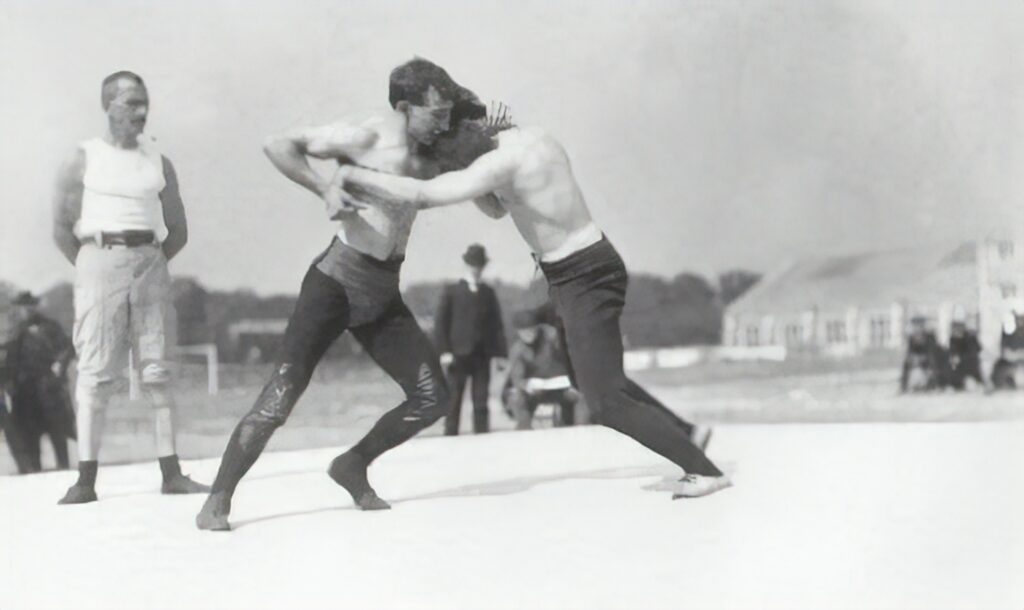Kayfabe In Foreign Policy

How do we understand Donald Trump’s recent prounouncements on imperial expansion? Does he really want to annex Canada, Greenland, and the Panama Canal? Does he understand what that would require? Or is it all hot air, intended to pwn the libs internationally?
Unfortunately, what the President-elect says about such things must be taken seriously. Trump randomly emits words, though, without context. He said nothing during the campaign about seizing those entities. Nor does he provide justifications beyond his own personal vibes.
A number of people have said that Trump’s paroxysms can be understood through the phenomenon of pro wrestling: the characteristic known as kayfabe. I have been trying to understand kayfabe, but as someone not particularly interested in sports in general and not at all in overmuscled men throwing each other around in clearly fake manner, I’ve had a hard time with that. I’ve finally found an explanation that sorta kinda makes sense to me.
Here is that article (gift link).
Once upon a time, the deception of pro wrestling was well-known among its aficionados but unspoken.
So, too, did wrestling seem absurd to those who weren’t fans. In fact, it was absurd to many fans, too — even a child can notice, after a while, that some wrestling moves are impossible to perform without cooperation between the fighters. But these enthusiasts didn’t care that it wasn’t on the level; they loved the personalities and the spectacle, and they longed to lose themselves in the illusion. They wanted to believe. Whether out of pride or shame, fans would rarely acknowledge to detractors that their beloved “sport” was fixed. To defend its honor, they upheld the lie that it was real. Even if fans didn’t know the word, they were complying with kayfabe.
When Vince McMahon, husband of Trump pick for Secretary of Education Linda McMahon, bought the World Wrestling Federation, he wanted fewer health and safety regulations than those required by sport and had the activity redefined as entertainment. He admitted that the competition was fake, uncovering kayfabe.
He ramped up the outrage and hate in a fusillade of fictions interspersed with reality. Fictional stories of the players’ lives had always been part of pro wrestling, but now fiction and reality mixed.
An owner might direct a wrestler to pretend he’s going rogue against the company in an outrageous monologue, then tell gullible journalists that he’s in big trouble with his employer, all to juice interest in what might happen next on the show. You knew wrestling was usually fake, but maybe this thing you were seeing, right now, was, in some way, real. Suddenly, the fun of the match had everything to do with decoding it.
The result:
Old kayfabe was built on the solid, flat foundation of one big lie: that wrestling was real. Neokayfabe, on the other hand, rests on a slippery, ever-wobbling jumble of truths, half-truths, and outright falsehoods, all delivered with the utmost passion and commitment. After a while, the producers and the consumers of neokayfabe tend to lose the ability to distinguish between what’s real and what isn’t. Wrestlers can become their characters; fans can become deluded obsessives who get off on arguing or total cynics who gobble it all up for the thrills, truth be damned.
Do you see some similarities to anything in current events?
Heather Cox Richardson wrote about neokayfabe in relation to Trump’s apparent neoimperialism:
Reisman concluded that producers and consumers of neokayfabe “tend to lose the ability to distinguish between what’s real and what isn’t.” In that, they echo the world identified by German-American historian and philosopher Hannah Arendt in her 1951 The Origins of Totalitarianism. “The ideal subject of totalitarian rule is not the convinced Nazi or the convinced Communist,” she wrote, “but people for whom the distinction between fact and fiction…and the distinction between true and false no longer exist.”
This sounds a bit like the folks who now are surprised at Trump’s actions in contrast to his explicit and implicit campaign promises. “He sounded like he cared about people like me.” This will continue.
If his statements of, for example, neoimperialism are indeed kayfabe (or neokayfabe if you like), we still don’t know their truth value. But we can evaluate them, outside of Trump, in terms of their liklihood and what actions he takes. The latter is similar to the way we evaluate Vladimir Putin’s nuclear threats: Is he moving the weapons out of their storage? Are missiles being prepared?
Trump’s actions on his imperialistic threats are nil, because he is not president. It’s worth keeping one’s eyes open for such actions after January 20, but not spending a lot of time on it. The Washington Post checked with people working for him who sounded like they were working very hard to make sense of these threats (gift link).
We need factual pushback on these and other Trump attempts to grab all the oxygen, but let’s not get wound up about them. He doesn’t want the facts, he wants to upset us. So let’s turn that around. Mistermix has a simpler response: He’s a Doddering Old Liar – Repeat It.


